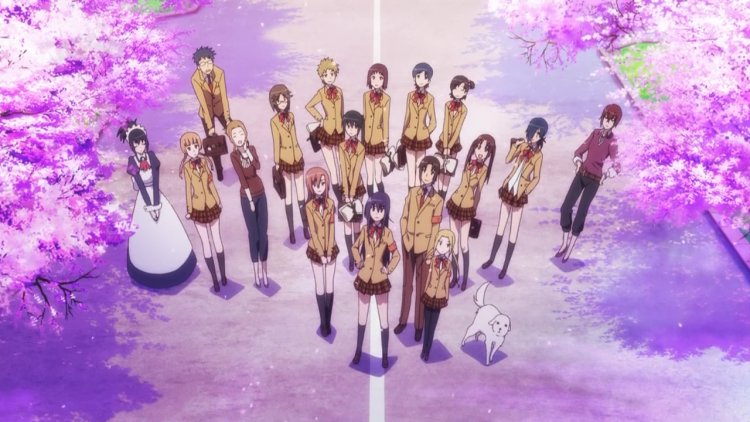TSUKI NO HIKARI NI MICHIBIKARE NANDO MO MEGURIAU
SEIZA NO MATATAKI KAZOE URANAU KOI NO YUKUE
ONAJI KUNI NI UMARETA NO MIRACLE ROMANCE
DOWNLOAD HD: [FTW]_Chuunibyou_demo_Koi_ga_Shitai!_Ren_-_04_[720p][885CC218].mkv
DOWNLOAD SD: [FTW]_Chuunibyou_demo_Koi_ga_Shitai!_Ren_-_04_[480p][A2EF05CA].mp4
The Causes and Effects of Eighth-Grade Syndrome Throughout History
fotc (Mazui Subs, Unlimited Translation Works)
Errata
Due to the reversed order and impromptu nature of the writing of this article (As stated previously, the author will write the article from front matter prior to content prior to end matter and has imposed a thirty-minute time limit on the writing of any given section.), corrections for errata in a published section may be found in the following section. Any known errata will be corrected in the completed article. Retroactive corrections to previously published material will not be made.
- Section 2: Replace all instances of “onset” with “acquisition.”
- Sections 2, 3, and 4: Reorder sections to describe the symptoms of eighth-grade syndrome prior to exploration.
3 The Root Cause of Eighth-Grade Syndrome
The imaginary audience and personal fable provide the adolescent with feelings of having attention, specialness, and invulnerability. The decline of these two cognitive distortions provides the adolescent with the opposite feelings: of being ignored, being ordinary, and mortality. These three feelings, in the context of terror management theory (TMT), explain in part the mentality and subsequent behaviors of eighth-grade syndrome sufferers.
A Terror Management Theory
Terror management theory posits that human actions are taken due to a basic psychological conflict: that humans wish to live despite the realization that death is inevitable. This conflict creates terror, which is mitigated through culture, or symbolic systems which provide life with meaning and value. Essentially, death is denied through symbolic immortality, through the idea that a part of the individual will live on despite death.
Symbolic immortality is achieved through being part of a greater whole, a community larger than oneself, which will live beyond the death of the individual. In the context of TMT, then, cultural constructs such as religion and nationalism are means of managing terror.
B TMT and Eighth-Grade Syndrome
In other words, TMT posits that a fear of mortality pushes the individual to join a larger community. This is clearly seen in many cases of eighth-grade syndrome, typically of the subculture type, in which the adolescent is quick to affiliate his or herself with a subcultural community. The subculture also provides the adolescent with defenses against the feelings of being ignored and being ordinary as well. First, as part of a smaller community than the entirety of mankind, the adolescent is no longer “ordinary”; the adolescent is differentiated, different, and thus regains a sense of specialness. Second, the adolescent is also able to express that he or she is part of the community, typically one little known or little understood by others, to gain attention. Finally, the adolescent is, as part of the subculture, able to garner the attention of others in the subculture with greater ease than if not part of the subculture.
However, the push to join a larger community does not adequately explain cases of eighth-grade syndrome in which the adolescent pursues isolation, such as the supernatural power (or jakigan) type, for instance. To explain such cases, the desire to reclaim lost attention and to be special must be considered. First, believing that one possesses supernatural powers differentiates the individual from the common, powerless masses, giving the adolescent a sense of being special. Second, the flamboyant expression of this belief and the imagined world are means of gaining attention (blank stares).
It remains that the supernatural power-type eighth-grade syndrome sufferer must have a means of denying his or her mortality, and this denial is self-evident in the sufferer’s supernatural powers. The sufferer will often explicitly state that he or she is immortal, or will be reincarnated, or any of a plethora of means of denying mortality. The sufferer effectively denies death through a religion of his or her own creation. The consequences of these means of denying mortality are explored in later sections.

The Causes and Effects of Eighth-Grade Syndrome Throughout History by fotc is licensed under a Creative Commons Attribution-NoDerivatives 4.0 International License.
Research was funded in part by FFF Fansubs.





